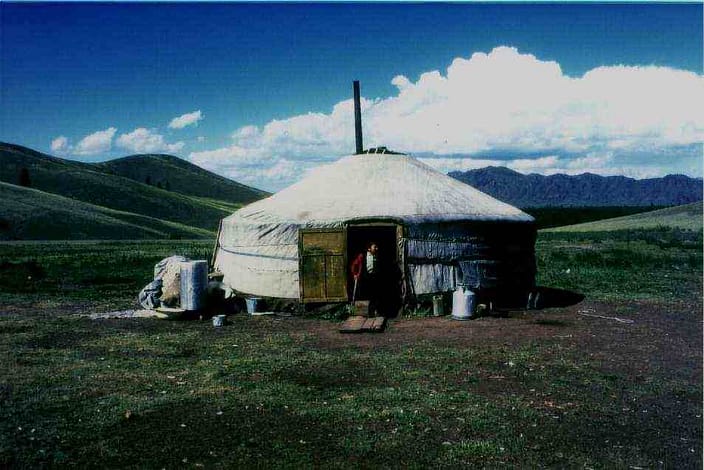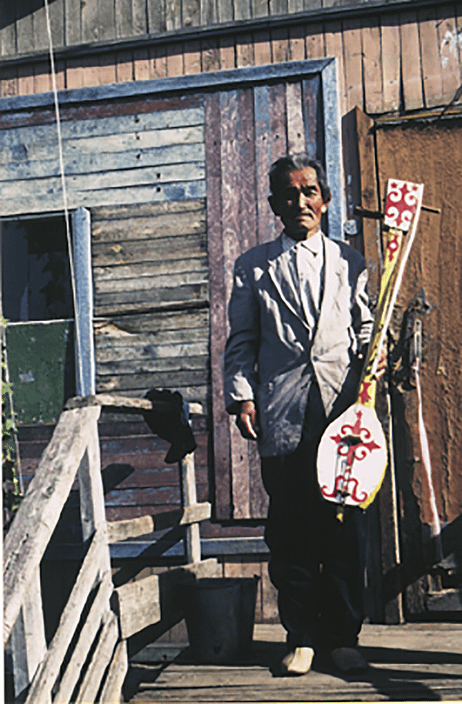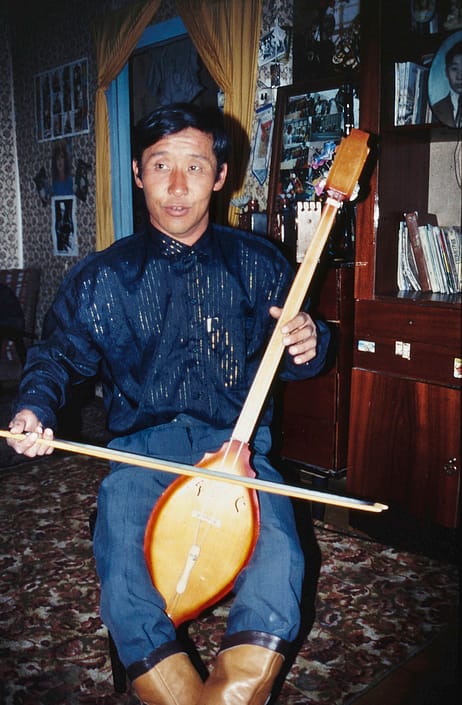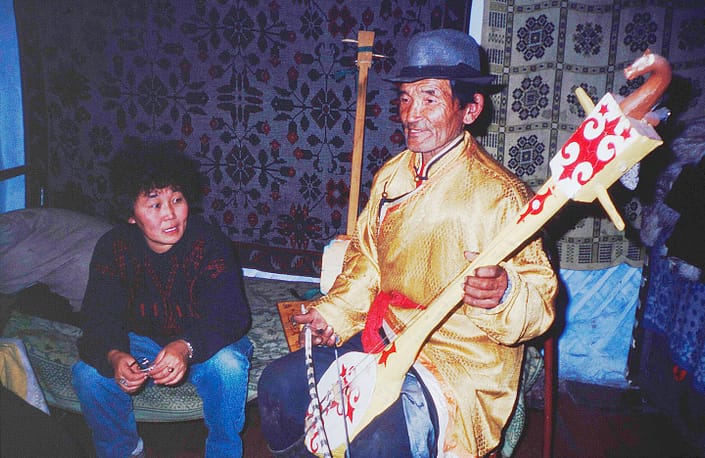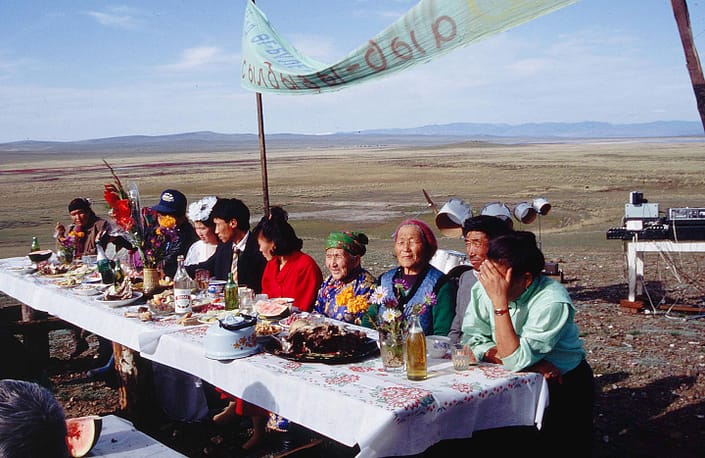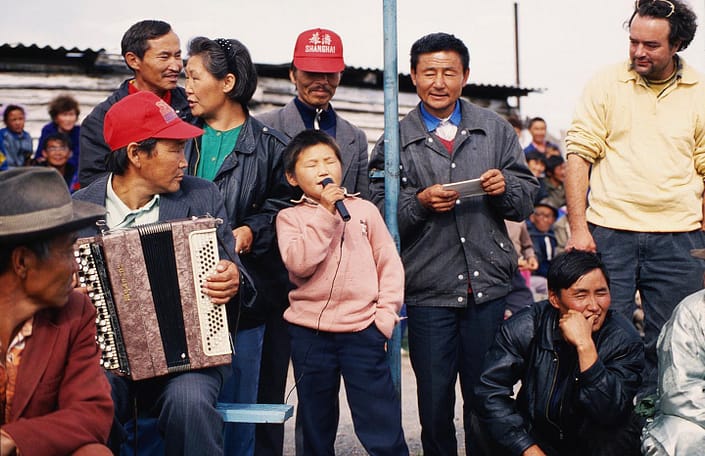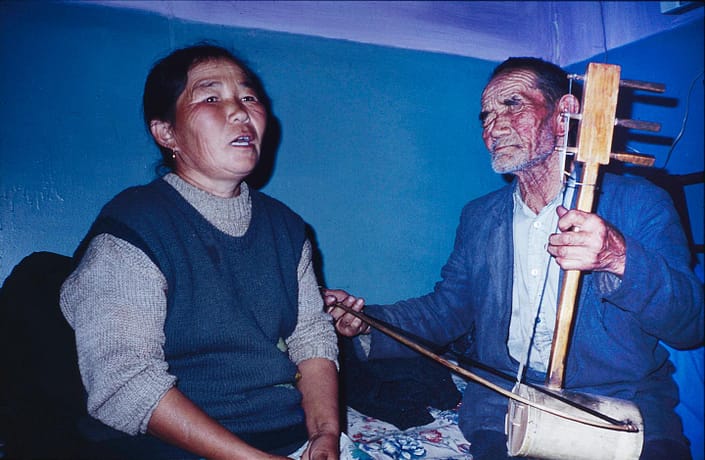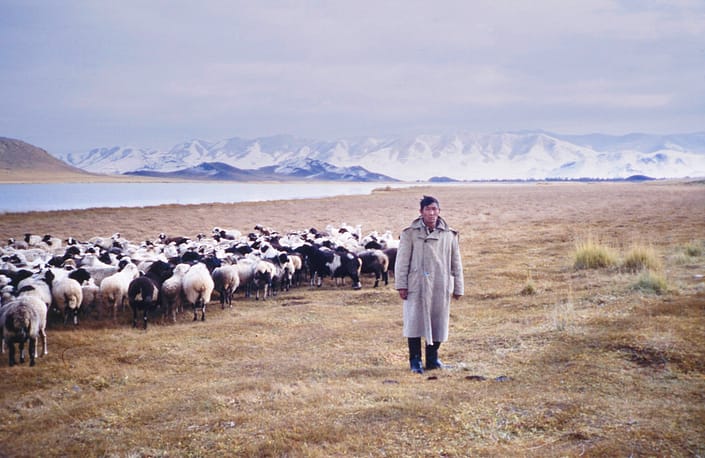At the “end of the world”, more precisely in the geographical center of Asia between Siberia and Mongolia, lies the small republic of Tuva. For centuries, the country, surrounded by mountain ranges, was isolated from the outside world. We wouldn’t know anything about Tuva if it weren’t for this strange song. What the Turkic-speaking Tuvans elicit from their vocal chords and throats is one of the most astonishing vocal forms on earth. Their phenomenal overtone or throat singing, which they call “Chöömeij” (Tuvan for “throat”), has thrilled world music audiences in Europe, the USA and Japan in recent years.
Wolfgang Hamm, composer and author, traveled three times to the largely unknown Tuva to uncover the secrets of the Chöömej on the spot. After extensive research and the production of a CD (WorldNetwork, German Record Critics’ Award 1994), his fourth trip to Tuva was dedicated to the medium of film and the question of why overtone music is so widespread and so deeply rooted in Tuva. Is it the close connection of the nomads and cattle breeders to nature from which the Chöömej draws its inspiration? Is it the spiritual world of the shamans or the influence of Tibetan Buddhism that favored this extreme vocal form of expression?
The film combines the vastness and beauty of a magnificent landscape with the everyday life of the nomads in the solitude of the steppe and remote mountain valleys, the sounds of nature and wildlife with the overtone chants of Tuvan “masters” and the sounds of horse violins and jaw harps; it shows something of the cultural “rebirth” of Tuvas today after the collapse of the Soviet Union, without concealing the dark sides of the “russification” of Tuvas and the difficulties of the current living situation.
Hier können Sie den Trailer kostenfrei ansehen. Danach auf Wunsch den ganzen Film abspielen, oder das Video kaufen.

